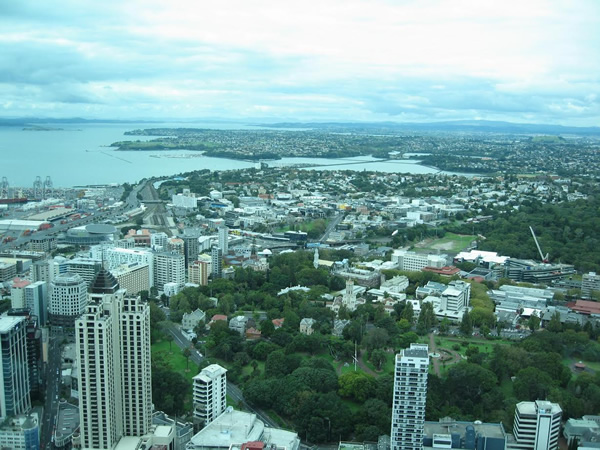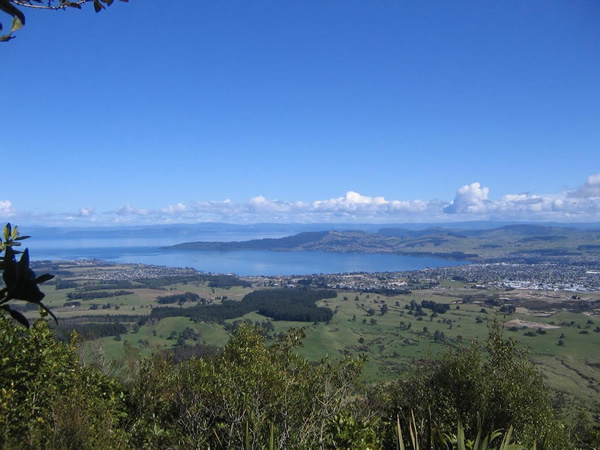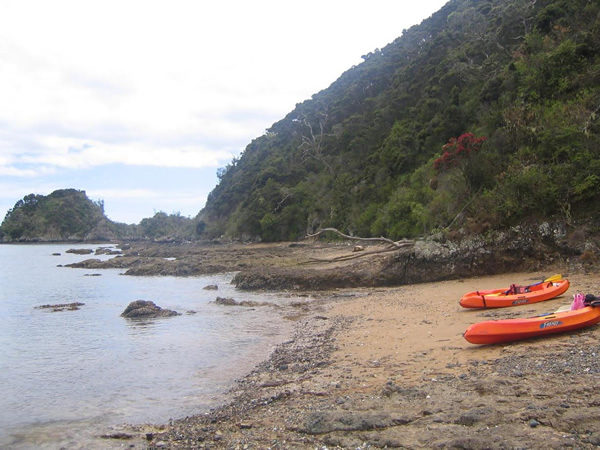A Year Living and Working in New Zealand
Aotearoa — "The Land of the Long White Cloud"
Article and photos by Lydia Horrex
Resources updated 8/3/2023 by Transitions Abroad
The Decision Was Made
At this time two years ago, I would not have been able to tell you a great deal about New Zealand. In fact, I had never really given the place a second thought until the day I discovered it was the only westernized country where my partner and I could both legally live and work. We had both just finished our degrees in America and my student visa was up — it was time to go back to the U.K. With neither of us having any work experience (therefore unlikely to be sponsored in each other's countries) it seemed our fates were sealed. Either we went our separate ways, or we found a country that would welcome both of us — and that country was New Zealand.
It was not at all complicated to organize a new life in New Zealand. It took us just a couple of weeks to wrap up everything back home, arrange visas, flights, and insurance. The immigration system in New Zealand proved to be particularly straightforward. Our education and countries of citizenship helped the procedure run smoothly and it was refreshing to have a quick, stress-free application process.
We chose to spend the year in Auckland. As New Zealand’s largest city, we hoped that this would make it easier to find work — which was our largest concern. Auckland has a population of 1.6 million and is small enough to get around by foot. If you are moving to New Zealand with the intention of finding work or wish to live in a city, I would primarily recommend Auckland. However, if you are a freelancer, run your own business, or can work from home, there are more scenic places to reside. New Zealand has many hidden paradises if you do not mind being a little out of the way.
Finding Accommodations in New Zealand
We arrived in Auckland with no prearranged accommodations, work or contacts, yet I would not say this hindered us in the slightest. It was refreshing to get there and arrange everything face to face. Our first goal was to find adequate accommodations for the year. With a good selection of apartments and a helpful estate agent, we managed to find the perfect place within a week.
We leased 1-bedroom apartment within a 3-star hotel. The location was central and luckily we could both walk to work to save on transport costs. We were also pleased with the added bonus of 24-hour security and a gym. Although we were living in the middle of the city, surprisingly we were rarely affected by noise or traffic. Our rent was reasonable (US$180 per week), especially when split between two. However, if you are looking for a more top-end apartment, such as a harbor view, you should budget for around US$350 per week.
 |
| View of Auckland City. |
 |
| View of Lake Taupo — 3 hours south of Auckland. |
New Zealand Working Holiday Versus Skilled Migration
To work legally in New Zealand you need a valid work visa. Working as a tourist is illegal. My partner and I held Working Holiday Visas for our 12-month stay. This visa is fantastic if you only plan to be in New Zealand temporarily, although, there are limitations. Firstly, you need to be between the ages of 18-30. Secondly, you are restricted to temporary work. I would certainly recommend this visa if you are considering a year abroad or if you are unsure whether you want to move to New Zealand permanently. The Working Holiday Visa is free for U.S. citizens, although unfortunately not for us Brits.
If you intend to stay in New Zealand longer than a year you will require a Temporary Work Visa, Business Visa or a Skilled Migrant Visa. You can make an application for one of these visas if you are already in the country (say on the Working Holiday Visa). New Zealand is currently under-resourced in certain fields and welcomes those with qualification and experience in these areas. Engineers, secondary school teachers, and electricians are examples of professions where skills are needed.
Work and Wages in New Zealand
The country’s friendly immigration regulations have emerged since the country has witnessed a slowdown in population. In 2005 New Zealand saw a decline of 10,000 people — a temporary knock to a country of (at the time) under 4 million, though by 2023 the population has risen to 5.1 million. Of course, many Kiwi’s do make the move to Australia for higher salaries, better prospects, and for what they perceive to be a higher quality of life. Also, New Zealand is not as cosmopolitan a country as Australia. If you wish to live in a fast-paced city where you can “party” every night until dawn, New Zealand probably is not the location for you — especially with Australia not far away.
With New Zealand losing a chunk of its youth to Australia every year, they are constantly looking to replenish their work force with immigrants. In 2022, 173 thousand work permits were issue to strengthen the country’s population in comparison to around 152 thousand in 2021. Considering New Zealand’s unemployment rate has been as low as 3.25%, this is a promising statistic for those lured by the promise of work.
Since my partner and I were on the Working Holiday Visa, we were restricted to temporary work. Yet this did not turn out to be too much of a problem since the temping agencies were excellent; we were rarely without a job. If you enter New Zealand on a Working Permit or Immigrant Visa, remember that you will be limited to work within your specific profession (unless you become a resident).
New Zealand offers a more relaxed and stress-free work ethic to that in the U.S. The office environment is certainly less cut-throat and you will find a working week to be around 40 hours. Leisure time in New Zealand is valued highly and this is reflected by the amount of time people spend in the office. Within my team, it was not uncommon for colleagues to leave work a little early to go sailing, diving, or swimming. Working as a Personal Assistant in a commercial bank, I was earning approximately US$2,500 a month (the tax rate was 19%). The wages are certainly enough to live comfortably.
Import Tax and High Prices
Although wages were reasonable, our paychecks felt the strain from the high price of everyday goods. Groceries are reasonable but if you wish to purchase anything from outside the country, the price is inflated due to a high import tax. For example, when purchasing any high-end makeup, toiletries, or clothes, I was paying three times as much as I would for the same brand in the U.S. Even little things like having photos developed or buying a chocolate bar was expensive. Living on a distant Island certainly comes at a price!
Quality of Life
With 1 in 5 residents born outside the country and a population composed of 120 different nationalities, we found New Zealand to be a diverse place to live. We found that the quality of life in New Zealand is high, and I believe this to be a major factor as to why many people make the move here. Many of New Zealand’s immigrants are of Polynesian descent and have come to join family or find safety from political corruption from their native islands. You will also find many Asians studying in the cities and British who have come to find a change in lifestyle. With the reality of being able to live by the beach, own a vineyard, or escape the daily grind of a fast-paced life, who can blame them?
Those attracted to a peaceful existence will find solitude in rural New Zealand. To some, the beauty of the country lies in its varied topography. If you have an adventurous soul and long to be outside, you could live next to mountainous terrain, a ski field or lush-green countryside. Or perhaps you would prefer to be a stone’s throw from the beach or retreat to one of the country’s small islands. Unfortunately, varied topography also comes with varied conditions. It was not unusual in New Zealand to experience four seasons in a day. The Maori people named New Zealand Aotearoa: “The land of the long white cloud."
 |
| Kayaks on the Bay of Islands in New Zealand. |
Why New Zealand?
For the entirety of our year, whenever we met someone new, we were always asked the same puzzling question, “Why New Zealand?” Whether we were opening a bank account, buying groceries, or just meeting new people — everyone was curious. They asked the question as if they could not imagine why anyone would want to leave a country like America or England for this little far-away island. And yes, New Zealand may be on the other side of the world, but then again, maybe that is the source of its charm.
Lydia Horrex graduated from Cardiff University, with one year exchange at UCLA. After spending six months working and traveling around Egypt, followed by a year in New Zealand, she lived and worked in Sydney, Australia.
|
